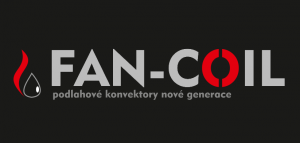
CORROSION, OXIDATION
One of the main and most common causes of heating systems leakage and fouling is a galvanic cell that occurs at places where metallic materials of different electrical potentials are connected and where water acts as an electrolyte.
The heating system usually contains 4-5 materials (aluminum radiators, brass fittings, copper wires, aluminum alloys).
For this reason, a magnesium electrode is added to the hot water boilers to protect the boiler. Magnesium has the lowest electrical potential of the materials used and will therefore be dissolved first.
We know from our experience that after 6-10 years water leakage will occur. Black oil, which flows from the system when draining and which settles in the heating quiescent zones, is a frequent cause of problems with the circulation pump. To avoid this problem, flush the system before applying any additions.
By using corrosion inhibitors, where the active ingredient is molybdenum, a protective coating is formed inside the system to prevent the formation of a galvanic cell and protect the surface from corrosion.
Application is carried out through the tap tap of the radiator after rinsing with clean water. The composition is diluted 1: 100.
It is recommended to check the concentration of molybdate active ingredient at the beginning of each heating season. The concentration should be higher than 250mg / liter.
Checks are carried out on request and we supply approx. 50 ml sample of heating water. The resource remains in the system permanently.
The corrosion inhibitor protects all materials including aluminum and its alloys. It prevents the formation of a galvanic cell in closed heating systems and creates a microfilm of molybdate. The pH after application is 9.5-10.
Antifreeze fluid
Antifreeze fluid protects heating systems from frost and corrosion damage. The product is also suitable for use on underfloor heating systems. Protects systems from freezing.
Table: Standard electrode potential at 25 ° C for some hydrogen-related metals
| Metal | Metal potential [V] |
| potassium | –2,92 |
| magnesium | -2,37 |
| aluminum | -1,66 |
| zinc | -0,76 |
| iron | -0,44 |
| cadmium | -0,4 |
| lead | -0,126 |
| hydrogen | 0 |
| copper | +0,34 |
| silver | +0,8 |
| mercury | +0,9 |
| gold | +1,42 |

